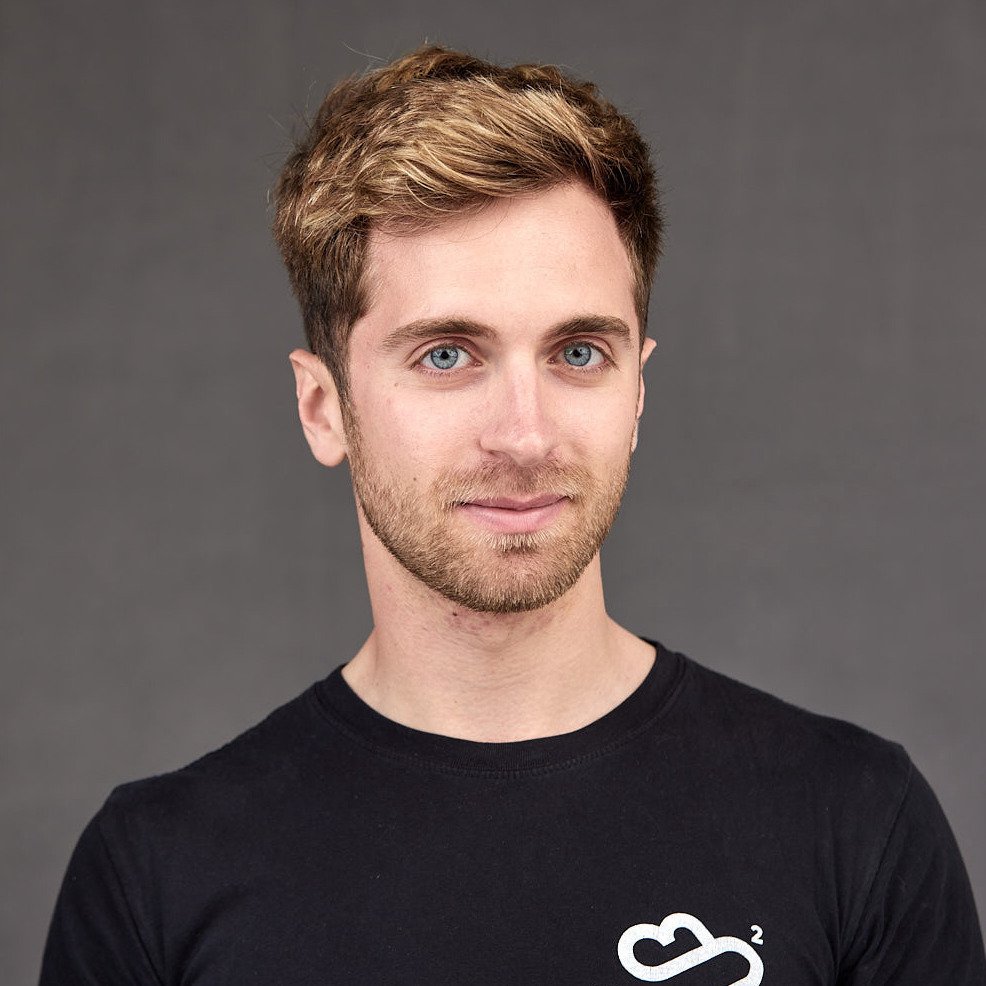#StartupsEverywhere Profile: Fabio Caironi, Founder & CEO, ByteNite
This profile is part of #StartupsEverywhere, an ongoing series highlighting startup leaders in ecosystems across the country. This interview has been edited for length, content, and clarity.
Reimagining Data Encoding for Easier, Faster Storage & Processing
Fabio Caironi is the Founder & CEO of ByteNite, a company that specializes in making computing more affordable and powerful by distributing the task of data encoding. ByteNite enables users to join their distributed network of personal computing devices to earn rewards for the use of their computing power to process and store data. In addition to learning about how he thinks about issues of data privacy, we spoke with Fabio more about the company he’s building and his firsthand experience navigating the complex U.S. immigration system.
What led you to ByteNite?
I have a bachelor's degree in mathematics, data science, and economics from my university in Milan. This gave me a sturdy foundation to understand the tools necessary to organize massive amounts of data—which helped me navigate internships and job opportunities at healthcare and financial companies. Throughout these experiences, I recognized the limitations of cloud computing, specifically the lack of price flexibility and the control that cloud providers have over the amount of computing power allocated to a user. I saw an opportunity to create a solution that would allow users to leverage the computing power of their own devices, thus forming the idea for ByteNite.
What does ByteNite do?
Our company is focused on distributed and collaborative computing networks that allow users to share their computing power in exchange for money and rewards. The platform distributes, encrypts, and processes the data through a completely distributed network of common devices, including personal computers and smartphones, using our patent-pending algorithm. The implications of this are significant in terms of both environmental benefits and faster processing speeds. By utilizing distributed computations, we can reduce energy usage for cooling data centers by up to 37 percent while also enabling faster processing through the parallelization of computing jobs. Overall, our mission at ByteNite is to provide a comprehensive 360-degree solution that benefits both tech and society.
What has your experience been navigating various privacy laws? How are you thinking about data privacy concerns?
As an Italian founder who recently moved to the U.S., I've experienced firsthand how policies—particularly data privacy policies like GDPR—can threaten the success of a startup in this space. While the laws in the U.S. are fragmented, I'm exploring potential incentives for bringing solutions like ours to the community while also remaining mindful of any potential threats posed by data protection policies.
Additionally, due to current data jurisdictional requirements, we have to be very intentional about where data is stored and accessed. As long as the data stays in the same jurisdiction of the company that submits the computing job, it's fine. However, some concerns arise, especially if data is crossing from Europe to the U.S.
We don't look into users' data. Our main asset right now is our users' videos, and our policy is to distribute the processing and let single devices get access to the data so they can crunch it. We don’t use either the videos or the devices data for any other purposes. Although we are dealing with some B2B business customers, the plan is also to open the doors to the public. As we grow and expand our user base, I know we’ll have to start exploring mechanisms to tackle the big task of making sure our users are using the service as intended.
What do you believe policymakers need to understand about navigating the U.S. immigration system as an International founder?
I can tell you that obtaining a visa to come to the U.S. was a challenging process—proving one's ability to start a successful business is not an easy task. I was fortunate enough to receive an E2 visa after an eight-month wait, but it was not an easy feat. Forming a company and hiring staff was actually the more straightforward part of the journey. We used third-party and SaaS services to incorporate the company and get the company started, which allowed us to do everything from abroad, while we were trying to get myself, as the owner of the business, to the United States. Despite the long wait, I eventually received my visa, and I know that many other founders are struggling with similar visa issues.
What are your goals for ByteNite moving forward?
Our primary goal is to introduce our distributed video encoding solution to the market and establish our brand awareness. As a foreign startup, building customer relationships from scratch is a challenging task. However, we are confident in our approach and are leveraging the resources of Silicon Valley to drive our success. Once we have established ourselves, we plan to expand our product offerings by integrating other compute-intensive applications, such as a text-to-image Gen AI app, which will enable us to tap into new markets and opportunities. With our vision and passion, we are excited about the future of ByteNite.
All of the information in this profile was accurate at the date and time of publication.
Engine works to ensure that policymakers look for insight from the startup ecosystem when they are considering programs and legislation that affect entrepreneurs. Together, our voice is louder and more effective. Many of our lawmakers do not have first-hand experience with the country's thriving startup ecosystem, so it’s our job to amplify that perspective. To nominate a person, company, or organization to be featured in our #StartupsEverywhere series, email advocacy@engine.is.



